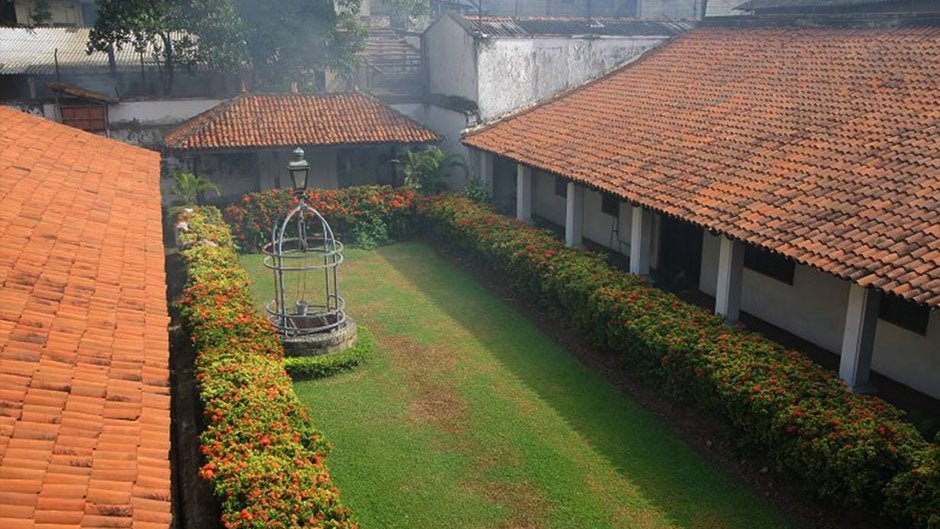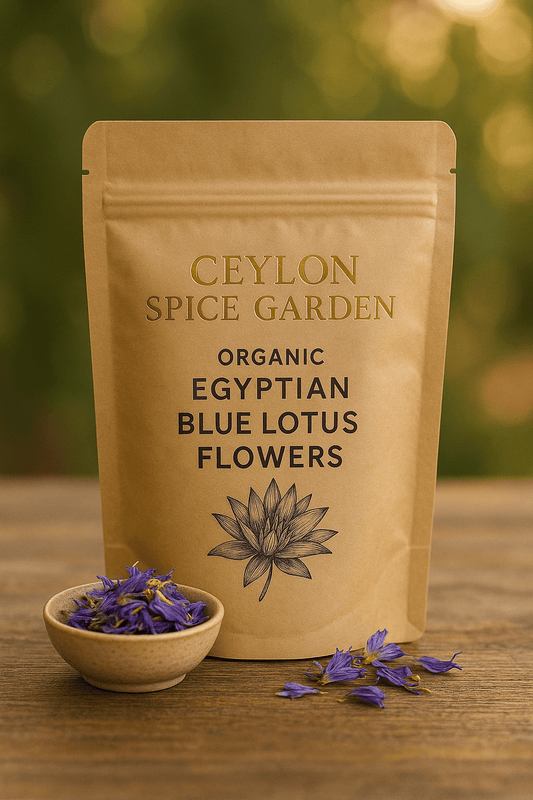
Fair Trade Ceylon Spice Companies to Support: Complete Guide 2025
Fair Trade Ceylon Spice Companies to Support: A Complete Guide to Ethical Spice Sourcing
Table of Contents
- What is Fair Trade in Ceylon Spices?
- Why Support Fair Trade Ceylon Spice Companies?
- Top Fair Trade Ceylon Spice Companies
- Ceylon Spice Garden: Leading the Way
- How to Identify Quality Fair Trade Spices
- Comparison of Fair Trade vs. Conventional Spices
- Complete Buying Guide
- Environmental Impact and Sustainability
- Frequently Asked Questions
What is Fair Trade in Ceylon Spices?
Fair trade Ceylon spices represent a revolutionary approach to spice cultivation that prioritizes farmer welfare, environmental sustainability, and community development. When you choose fair trade certified spices from Sri Lanka, you're supporting a system that guarantees farmers receive fair compensation for their premium products.
Ceylon, the former name of Sri Lanka, has been renowned for centuries as the world's premium spice producer. The island's unique climate and rich soil create ideal conditions for growing cinnamon, cardamom, cloves, nutmeg, and black pepper of unparalleled quality.
Key Fair Trade Principles for Ceylon Spices:
- Fair pricing: Guaranteed minimum prices that cover production costs and living wages
- Community development: Premium funds invested in local infrastructure and education
- Environmental protection: Sustainable farming practices that preserve biodiversity
- Worker empowerment: Democratic decision-making and safe working conditions
- Long-term partnerships: Stable trading relationships that support planning and investment
Why Support Fair Trade Ceylon Spice Companies?
Supporting fair trade Ceylon spice companies creates a positive impact that extends far beyond your kitchen. These ethical partnerships transform entire communities while delivering exceptional quality spices to your table.
Direct Benefits to Sri Lankan Farmers
Fair trade certification ensures that Ceylon spice farmers receive 20-30% higher prices compared to conventional markets. This premium enables farmers to invest in better farming equipment, education for their children, and healthcare for their families. Additionally, fair trade cooperatives provide access to credit, training in sustainable farming techniques, and collective bargaining power.
Superior Product Quality
Fair trade Ceylon spice companies often maintain higher quality standards than conventional suppliers. The financial stability provided by fair trade allows farmers to focus on quality over quantity, resulting in spices with more intense flavors, better preservation, and higher essential oil content.
Environmental Conservation
Ceylon's biodiversity hotspots benefit significantly from fair trade practices. Sustainable farming methods preserve soil health, protect water sources, and maintain habitat for endangered species like the Sri Lankan leopard and various endemic bird species.
Top Fair Trade Ceylon Spice Companies
Several exceptional companies lead the fair trade movement in Sri Lanka's spice industry. These organizations combine traditional knowledge with modern ethical business practices to deliver premium spices while supporting local communities.
Leading Fair Trade Certified Suppliers
- Ceylon Spice Garden: Pioneer in sustainable spice cultivation and community development
- Lakpura Worldwide: Specializes in organic and fair trade certified Ceylon spices
- Malwatte Valley Plantations: Large-scale tea and spice producer with fair trade certification
- Watawala Plantations: Multi-generational company focusing on ethical sourcing
- Dilmah Spices: Extension of the famous tea brand into fair trade spices
Ceylon Spice Garden: Leading the Way in Ethical Spice Production
Ceylon Spice Garden stands as a beacon of excellence in the fair trade Ceylon spice industry. Founded with a mission to preserve Sri Lanka's spice heritage while empowering farming communities, this company has revolutionized how premium spices reach global markets.
What Sets Ceylon Spice Garden Apart
Ceylon Spice Garden's commitment to sustainable agriculture and fair trade principles has earned them recognition as one of Sri Lanka's most trusted spice exporters. Their direct relationships with over 500 small-scale farmers ensure that traditional knowledge passes to new generations while embracing modern quality standards.
Ceylon Spice Garden's Fair Trade Impact:
- Community Investment: Over $2 million invested in rural infrastructure since 2010
- Education Support: Scholarships for 200+ farmer children annually
- Healthcare Access: Mobile clinics serving 15 remote farming villages
- Women's Empowerment: Leadership training for female farmers and cooperative members
- Organic Certification: 80% of their suppliers are certified organic farmers
Product Excellence and Quality Assurance
Ceylon Spice Garden maintains strict quality control throughout their supply chain. Each batch undergoes laboratory testing for purity, moisture content, and essential oil concentration. Their state-of-the-art processing facility preserves the natural properties of spices while meeting international food safety standards.
The company specializes in Ceylon cinnamon, organic cardamom, premium cloves, and traditional spice blends that have been perfected over generations. Their commitment to traceability means every product can be traced back to the specific farm and harvest date.
How to Identify Quality Fair Trade Ceylon Spices
Recognizing authentic, high-quality fair trade Ceylon spices requires understanding specific markers that distinguish premium products from inferior alternatives. These indicators help ensure you're supporting genuine fair trade practices while getting exceptional value.
Certification Marks to Look For
- Fairtrade International Logo: The blue and green circular logo guarantees adherence to international fair trade standards
- USDA Organic: Ensures spices are grown without synthetic pesticides or fertilizers
- Rainforest Alliance Certified: Indicates sustainable farming practices and biodiversity conservation
- Sri Lanka Export Development Board: Government certification for authentic Ceylon origin
- ISO 22000: International food safety management certification
Physical Quality Indicators
Premium Ceylon Spice Characteristics:
- Ceylon Cinnamon: Light brown color, delicate texture, sweet aroma without bitterness
- Ceylon Cardamom: Plump pods with strong fragrance, uniform green color
- Ceylon Cloves: Dark brown, oily appearance with intense aroma
- Ceylon Nutmeg: Round, firm texture with rich brown color
- Ceylon Black Pepper: Uniform size, wrinkled surface, pungent aroma
Packaging and Labeling Standards
Quality fair trade Ceylon spice companies provide comprehensive product information including harvest date, processing method, farmer cooperative details, and storage recommendations. Proper packaging protects spices from light, moisture, and air while maintaining freshness.
Comparison of Fair Trade vs. Conventional Ceylon Spices
Understanding the differences between fair trade and conventional Ceylon spices helps consumers make informed decisions that align with their values and quality expectations.
| Aspect | Fair Trade Ceylon Spices | Conventional Ceylon Spices |
|---|---|---|
| Farmer Compensation | Guaranteed fair prices + community premium | Market-dependent, often below living wage |
| Quality Standards | Rigorous quality control, premium grades | Variable quality, focus on quantity |
| Environmental Impact | Sustainable farming, biodiversity protection | Conventional methods, possible pesticide use |
| Traceability | Complete farm-to-consumer tracking | Limited or no traceability |
| Community Development | Investment in education, healthcare, infrastructure | Minimal community investment |
| Price Premium | 10-25% higher than conventional | Lower upfront cost |
| Long-term Relationships | Stable partnerships, advance financing | Transaction-based, price volatility |
The price premium for fair trade Ceylon spices represents an investment in quality, sustainability, and social responsibility. While conventional spices may appear cheaper initially, fair trade products often provide better value through superior flavor intensity, longer shelf life, and positive social impact.
Complete Buying Guide for Fair Trade Ceylon Spices
Purchasing fair trade Ceylon spices requires careful consideration of several factors to ensure authenticity, quality, and value. This comprehensive guide helps you navigate the market and make informed decisions.
Where to Buy Authentic Fair Trade Ceylon Spices
- Direct from Producers: Companies like Ceylon Spice Garden offer direct sales with guaranteed authenticity
- Certified Retailers: Specialty spice shops with fair trade partnerships
- Online Marketplaces: Verified sellers on platforms with buyer protection
- Health Food Stores: Established retailers focusing on organic and ethical products
- International Trade Shows: Direct contact with producers and importers
Pricing Guidelines and Value Assessment
Fair trade Ceylon spices typically command premium prices reflecting their quality and ethical production methods. Expect to pay 15-30% more than conventional alternatives, with prices varying based on spice type, certification level, and seasonal availability.
Price Ranges for Premium Fair Trade Ceylon Spices (per 100g):
- Ceylon Cinnamon Sticks: $12-18
- Ceylon Cardamom Pods: $25-35
- Ceylon Cloves: $15-22
- Ceylon Nutmeg: $20-28
- Ceylon Black Pepper: $18-25
Storage and Preservation Tips
Proper storage maximizes the investment in fair trade Ceylon spices by preserving their potency and flavor. Store spices in airtight containers away from light, heat, and moisture. Whole spices maintain quality for 2-3 years, while ground spices should be used within 12-18 months for optimal flavor.
Environmental Impact and Sustainability
Fair trade Ceylon spice companies play a crucial role in environmental conservation and climate change mitigation. Their sustainable practices protect Sri Lanka's unique ecosystems while ensuring long-term viability of spice cultivation.
Biodiversity Conservation Efforts
Ceylon's spice regions overlap with biodiversity hotspots containing numerous endemic species. Fair trade practices encourage agroforestry systems where spice cultivation occurs alongside native trees, creating corridors for wildlife movement and habitat preservation.
Climate Resilience and Adaptation
Fair trade premiums enable farmers to invest in climate-resilient infrastructure, drought-resistant varieties, and water conservation systems. These adaptations ensure continued production despite changing weather patterns affecting traditional growing regions.
Sustainability Achievements by Fair Trade Ceylon Spice Companies:
- Carbon Sequestration: Agroforestry systems store 40% more carbon than monocultures
- Water Conservation: 25% reduction in water usage through efficient irrigation
- Soil Health: Organic matter increased by 35% in certified farms
- Pesticide Reduction: 80% decrease in synthetic chemical applications
- Renewable Energy: Solar processing facilities reducing carbon footprint by 60%
Making a Difference Through Ethical Spice Choices
Choosing fair trade Ceylon spice companies creates a ripple effect of positive change that extends from Sri Lankan farming communities to your kitchen. By supporting ethical suppliers like Ceylon Spice Garden and other certified producers, you contribute to sustainable agriculture, community development, and environmental conservation while enjoying the world's finest spices.
Every purchase of fair trade Ceylon spices represents a vote for a more equitable and sustainable food system. Start your journey today by exploring the exceptional products from certified fair trade Ceylon spice companies.











